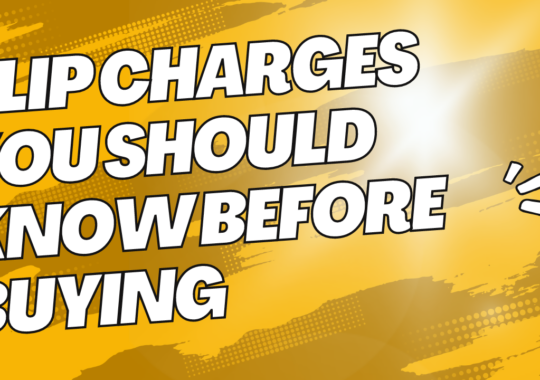Life is unpredictable, and no one knows what the future holds. While we can’t control everything that happens, we can take steps to protect ourselves and our loved ones from the financial impact of unforeseen events. One way to do that is through a term insurance policy.

What is a term insurance policy?
A term insurance policy is a type of life insurance that provides coverage for a specific period of time, typically ranging from 1 to 30 years. The policy pays out a death benefit to the beneficiary if the insured person passes away during the term of the policy. Unlike permanent life insurance policies, term insurance does not include a savings component or investment feature.
Term insurance policies are generally more affordable than permanent life insurance policies, making them an attractive option for individuals and families on a budget. They can be useful in providing financial protection during a specific period of life, such as when raising young children or paying off a mortgage. However, it’s important to note that once the term of the policy expires, the coverage also ends, and there is no cash value or equity build-up. Therefore, it’s essential to carefully consider the length and amount of coverage needed and to review and renew the policy periodically to ensure that it continues to meet your needs.
Still on the edge about which term insurance to pick? Here’s a simplified solution!
So why do you need a term insurance policy? For starters, it provides peace of mind. Knowing that your loved ones will be taken care of in case something happens to you can help alleviate some of the stress and worry that come with the uncertainties of life. Additionally, a term insurance policy can be an affordable way to get coverage, especially if you’re young and healthy. By locking in a low premium rate when you’re younger, you can ensure that you’ll have coverage when you need it most, without breaking the bank.
In the rest of this article, we’ll explore the features of term insurance policies in more detail, including the types of term policies available, how much coverage you might need, and factors to consider when choosing a policy. By the end, you’ll have a better understanding of what a term insurance policy is and why it might be a good choice for you.
Why do you need a term insurance policy?
- A term insurance policy provides peace of mind, knowing that your loved ones will be taken care of in case something happens to you.
- Term insurance policies can be an affordable way to get coverage, especially if you’re young and healthy. By locking in a low premium rate when you’re younger, you can ensure that you’ll have coverage when you need it most, without breaking the bank.
- Term insurance policies can also be useful for those who have a specific financial need, such as paying off a mortgage or other debts.
Types of term insurance policies
- Level term: The death benefit and premium remain the same throughout the term.
- Decreasing term: The death benefit decreases over time, but the premium stays the same. This type of policy is often used to cover a mortgage or other debts that decrease over time.
- Increasing term: The death benefit increases over time, but the premium also increases. This type of policy is less common but may be useful for those who want to ensure that their coverage keeps pace with inflation.
How much coverage do you need?
- The amount of coverage you need depends on your individual circumstances, such as your income, debts, and financial goals.
- As a general rule of thumb, you should aim for coverage that is 10 to 12 times your annual income.
- You may also want to consider factors such as your mortgage, children’s education, and any other expenses your loved ones would face in the event of your passing.
Factors to consider when choosing a term insurance policy
- The length of the term: You should choose a term that matches your financial goals and timeline.
- The amount of coverage: As mentioned earlier, you should aim for coverage that is 10 to 12 times your annual income, but also consider other factors such as your debts and expenses.
- The premium: The premium should be affordable and fit within your budget.
- The insurer’s reputation: You should choose an insurer with a good track record for paying out claims and providing excellent customer service.
Also read:
- Health Insurance vs Term Insurance: What is the difference?
- Types Of Insurance Policies Insurance Agents Can Sell
- How does having a trust fund benefit you in the long run?
FAQs
How long does a term insurance policy last, and what happens when the term ends?
A term insurance policy typically lasts for a specific period, such as 10, 20, or 30 years. When the term ends, the coverage also ends, and there is no cash value or equity build-up. Some policies may allow for renewal at the end of the term, but the premium rates may increase.
Is term insurance more affordable than permanent life insurance policies?
Term insurance policies are generally more affordable than permanent life insurance policies, making them an attractive option for individuals and families on a budget. The premiums for term insurance policies are typically lower because their scope is for a specific period and do not include a savings component or investment feature.
Can I renew my term insurance policy after the term ends, and how does it work?
Some term insurance policies allow for renewal at the end of the term, but the premium rates may increase. The renewal process typically involves applying for a new policy and undergoing underwriting, which may include a medical exam and health assessment.
Can I convert my term insurance policy to a permanent life insurance policy?
Some term insurance policies may allow for conversion to a permanent life insurance policy, but the terms and conditions of conversion may vary by policy. The conversion may also result in higher premiums, as permanent life insurance policies typically have higher premiums than term policies.
Are there any exclusions or limitations to coverage with a term insurance policy?
Like any insurance policy, term insurance policies may have exclusions or limitations to coverage. For example, some policies may exclude coverage for certain pre-existing medical conditions or risky activities. It’s important to review the policy carefully and ask questions to fully understand the coverage and any exclusions or limitations.
What happens if I miss a premium payment on my term insurance policy?
If you miss a premium payment on your term insurance policy, the coverage may lapse, meaning that the policy is no longer in force. The exact consequences may vary by policy and insurer, but some policies may have a grace period during which you can make up the missed payment and reinstate the policy.
What is a death benefit, and how is it determined with a term insurance policy?
The death benefit is the amount that the beneficiary receives if the insured person passes away during the term of the policy. The death benefit amount is typically determined at the time of application and may be based on factors such as the insured person’s age, health, and income.
Can I add riders or additional coverage to my term insurance policy?
Some term insurance policies may allow for the addition of riders or additional coverage, such as accidental death coverage or disability income coverage. These additions may result in higher premiums, but they can provide additional protection and peace of mind.
What is the process for applying and getting approved for a term insurance policy?
The process for applying and getting approved for a term insurance policy typically involves filling out an application and undergoing underwriting, which may include a medical exam and health assessment. The insurer will evaluate the application and determine whether to offer coverage and at what premium rate.
Can I purchase a term insurance policy if I have a pre-existing medical condition?
Some insurers may offer term insurance policies to individuals with pre-existing medical conditions, but the coverage and premiums may be impacted by the condition. It’s important to disclose any pre-existing conditions when applying for insurance to ensure that the policy accurately reflects your health and needs.
Conclusion
A term insurance policy is a type of life insurance that provides financial security for your loved ones in case of your untimely demise. Unlike other types of life insurance, term policies are relatively affordable and easy to understand. They offer a straightforward way to protect your family’s financial future without breaking the bank.
There are several reasons why you might need a term insurance policy. Perhaps you have young children who depend on you for financial support, or you have debts and obligations that you want to ensure will be taken care of if something happens to you. Whatever your reasons, a term policy can give you peace of mind knowing that your loved ones will be protected if the worst were to happen.
When choosing a term insurance policy, it’s important to consider factors such as the length of the term, the amount of coverage, and the premiums you’ll need to pay. By doing your research and shopping around, you can find a policy that meets your needs and fits within your budget.
In the end, a term insurance policy is a smart investment in your family’s financial security. By taking the time to get the right coverage, you can rest easy knowing that your loved ones will be taken care of no matter what. So if you haven’t already, consider looking into a term policy today and take the first step towards a more secure future for your family.



